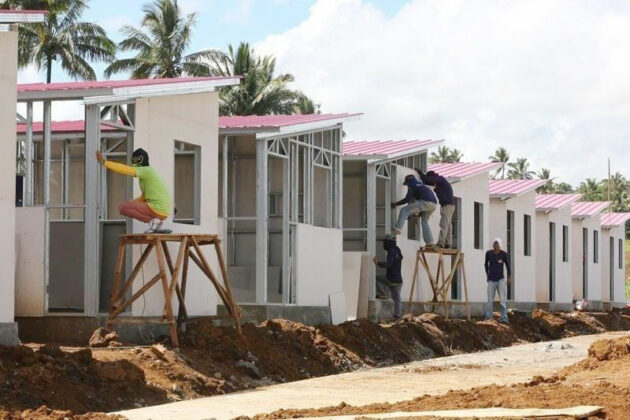The document “Challenges and Priorities in Housing and Urban Development in the UNECE Region – Short National Reports on Housing and Urban Development” presents an overview of the housing and urban development landscape across the United Nations Economic Commission for Europe (UNECE) member states. It highlights the significant challenges these countries face in providing adequate housing and outlines priorities for future development.
Further reading:
[PDF] ECE/HBP/2017/1 Economic and Social Council Distr.: General mmr.gov
[PDF] The Geneva UN Charter mmr.gov
Context of Housing in the UNECE Region
The UNECE region encompasses 56 member states, including diverse economies and varying levels of urbanization. The report emphasizes that housing is a fundamental human right, yet many countries struggle with issues such as affordability, accessibility, and quality of housing. Rapid urbanization, demographic changes, and economic disparities have exacerbated these challenges, leading to increased demand for affordable housing solutions.

Key Challenges Identified
- Housing Affordability: A primary concern across the UNECE region is the rising cost of housing. Many households allocate a significant portion of their income to housing expenses, which can lead to financial strain and increased poverty levels. The report notes that approximately one in four people in the region lives in inadequate housing conditions.
- Supply Shortages: There is a substantial gap between the demand for affordable housing and the available supply. Many countries have seen a decline in social housing stock due to years of underinvestment, leading to increased reliance on private markets that often do not cater to low-income populations.
- Urban Sprawl: Rapid urbanization has led to sprawling cities with inadequate infrastructure. This sprawl often results in increased commuting times, environmental degradation, and social isolation for residents living in outlying areas.
- Inequality: The report highlights that marginalized groups, including low-income families, migrants, and ethnic minorities, are disproportionately affected by housing crises. These groups often face discrimination in accessing housing and are more likely to live in substandard conditions.
- Regulatory Barriers: Inefficient land use regulations and bureaucratic hurdles can impede the development of new housing projects. Many countries lack coherent policies that promote sustainable urban development and affordable housing initiatives.
Priorities for Action
The document outlines several priorities that UNECE member states should consider to improve housing conditions:
- Enhancing Policy Frameworks: Governments are encouraged to develop comprehensive housing policies that prioritize affordability and accessibility. This includes revising existing regulations to facilitate the construction of affordable housing units.
- Promoting Social Housing: Increasing investment in social housing is crucial for addressing supply shortages. The report advocates for public-private partnerships that can leverage resources for affordable housing development.
- Encouraging Sustainable Practices: Integrating sustainability into urban planning is essential for creating resilient communities. This includes promoting energy-efficient buildings and sustainable transport options to reduce environmental impacts.
- Strengthening Community Engagement: Involving local communities in decision-making processes ensures that housing solutions reflect their needs. Community engagement fosters a sense of ownership and accountability among residents.
- Addressing Inequality: Targeted interventions are necessary to support marginalized groups facing housing challenges. Policies should focus on inclusivity and provide assistance to those most in need.
Innovative Solutions
The report highlights various innovative approaches being adopted across the UNECE region:
- Inclusionary Zoning: Some cities have implemented zoning laws that require developers to include affordable units in new developments, ensuring a mix of income levels within communities.
- Cooperative Housing Models: Cooperative housing initiatives empower communities to manage their housing solutions collaboratively, providing affordable options while fostering social cohesion.
- Use of Technology: Digital tools are increasingly being used for urban planning and management, allowing for more efficient resource allocation and improved service delivery.
Conclusion
The “Challenges and Priorities in Housing and Urban Development in the UNECE Region” document underscores the urgent need for coordinated action among member states to tackle the multifaceted challenges of housing provision. By prioritizing affordable housing initiatives, enhancing policy frameworks, promoting sustainable practices, and engaging communities, UNECE countries can work towards creating inclusive urban environments where all residents have access to safe, adequate, and affordable homes. The report serves as a call to action for policymakers at all levels to address these pressing issues collaboratively and effectively, ensuring that housing remains a fundamental right for all citizens within the region.
